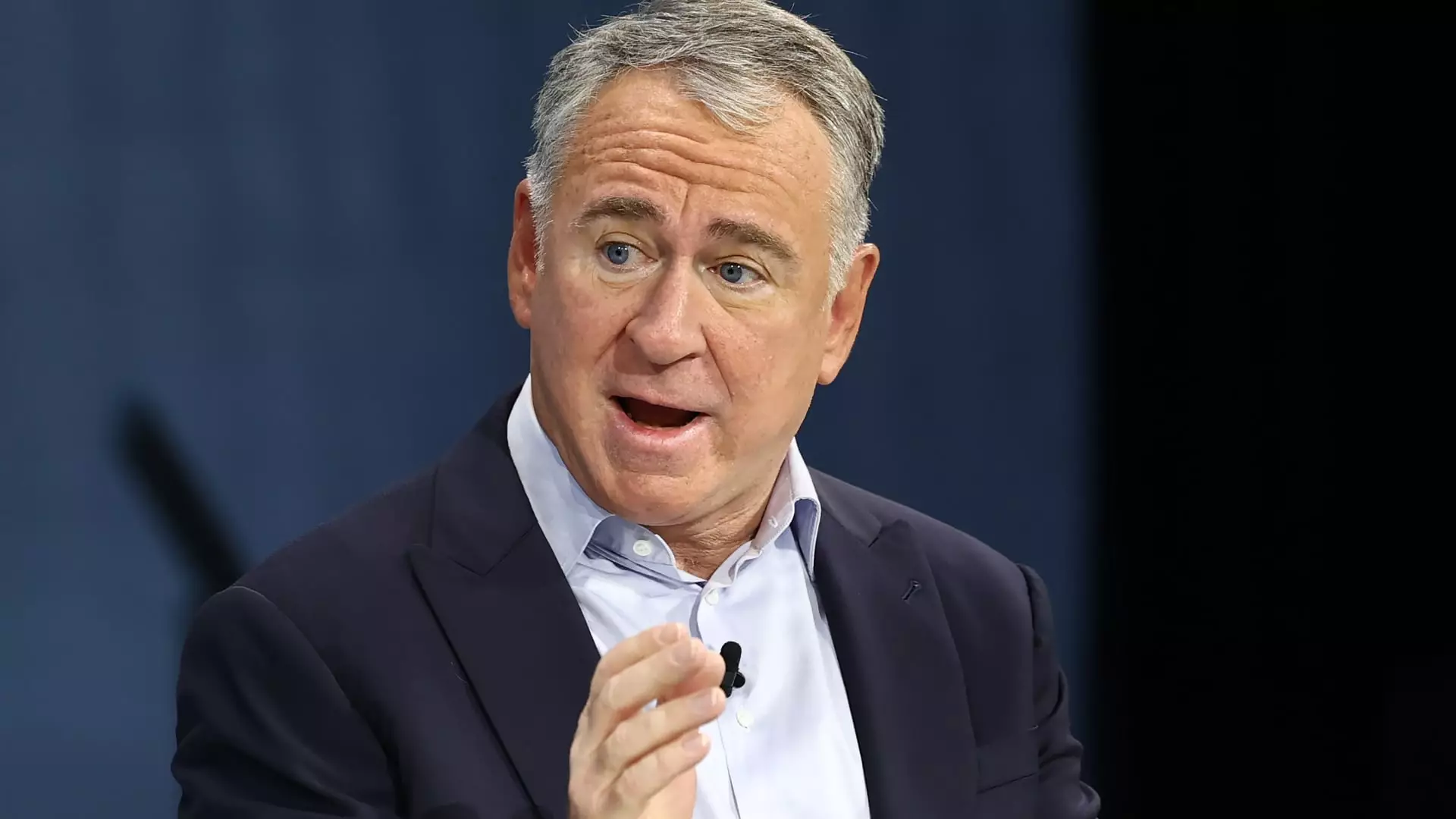In recent times, the global trading landscape has become increasingly volatile, largely influenced by the political climate in the United States. Ken Griffin, CEO of Citadel, raised alarm bells at a recent financial conference, shedding light on the detrimental effects that a confrontational trade strategy can impose on both domestic and international markets. His remarks resonate deeply in an era where businesses require stability and predictability to thrive.
Griffin’s critique of President Donald Trump’s aggressive trade policies underscores a significant concern among investors and executives alike. The CEO highlighted that the “bombastic rhetoric” accompanying trade negotiations has already caused damage to global perceptions of the United States as a reliable trading partner. Such sentiments do not merely reflect on a national level but ripple through the fabric of international trade relations, fostering an environment of uncertainty. When business leaders around the world question the reliability of the U.S., which is often seen as a bastion of stability, the implied risk can deter investment and innovation.
The imposition of new tariffs, such as the 25% duty on steel and aluminum imports announced by Trump, further complicates matters. Griffin’s observations suggest that these measures not only aim to protect domestic industries but could inadvertently alienate potential economic collaborators. The political maneuvering surrounding tariffs could result in long-term challenges for multinational companies that thrive on predictable trade relationships. Griffin eloquently pointed out that when businesses are forced to navigate a landscape fraught with unpredictable tariffs, their ability to plan for the future becomes severely compromised.
Long-term Vision vs. Short-term Gains
The crux of Griffin’s argument revolves around the investment climate created by such measures. Multinational corporations typically engage in capital-intensive projects that require extensive planning and commitment over many years. Griffin’s insights suggested that the current landscape, fraught with punitive tariffs and shifting trade policies, may hinder businesses from committing to long-term investments. This hesitation can stifle economic growth, innovation, and job creation—elements crucial for the nation’s economic fabric.
Moreover, Griffin raised concerns about crony capitalism, a phenomenon where business entities can unduly influence government policy through close relationships. This relationship can lead to preferential treatment and inequity, ultimately distorting market competition and harming the economy. The rise of tariffs may exacerbate these dynamics as businesses scramble to navigate the newly imposed barriers, leading to potential manipulation of trade policy for personal gain rather than fostering healthy market competition.
Ken Griffin’s observations serve as a clarion call for vigilance in the face of aggressive trade policies. His insights highlight the delicate balance that must be struck between asserting national interests and maintaining the integrity of international trade relationships. As economic leaders reflect on these issues, it becomes evident that fostering a cooperative and stable trade environment is essential for long-term prosperity. The path forward will require careful consideration of both the immediate and long-lasting consequences of current trade policies, ensuring that the U.S. remains a dependable partner on the global stage.

